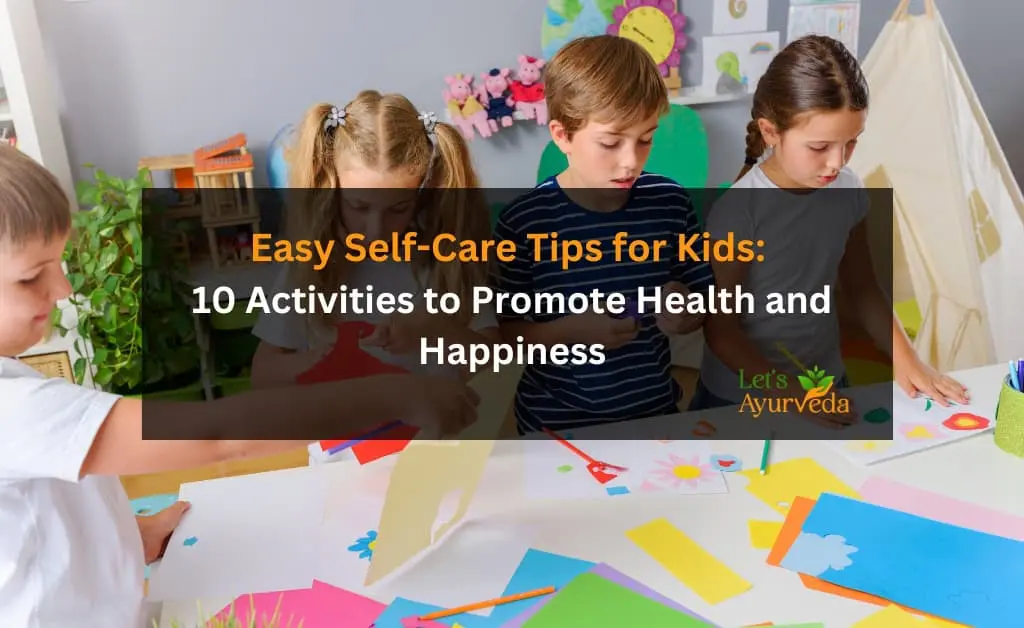Introduction
It's normal for kids these days to feel tons of pressure from school, all their extracurriculars, and fitting in with their friends. It can really stress them out. As parents, we want our kids to do well and be happy, but figuring out how to help them take care of their mental and physical health is no easy task.
When your child comes home from school very tired and in a bad mood, it can be because they have much to do. They have homework, sports practice, and hardly any time to rest. If this continues for a long time, it can make them tired, anxious, and sick. Not caring for themselves can make it harder to handle stress and control their feelings.
It's great to know that helping kids care for themselves can have a significant impact. It's important to teach children how to take care of themselves to form good habits that will stick with them as they grow up. Let's examine ten simple self-care activities that can become part of your child's daily routine.
Establish a Consistent Bedtime Routine
Getting a good night's sleep is really important for a child's growth and health. Research tells us kids between 6 and 12 should aim for 9-12 hours of sleep each night. Having a regular bedtime routine can make it easier for your child to relax and get the needed rest.
Tips:
- Create a calming pre-sleep ritual, like reading a book or listening to soft music.
- Ensure the bedroom environment is conducive to sleep—relaxed, dark, and quiet.
- Avoid using screens like phones, tablets, and computers for at least an hour before bed.
Encourage Physical Activity
Regular exercise benefits physical health, boosts mood, and reduces stress. According to the CDC, children should have at least 60 minutes of physical activity daily.
Ideas:
- Organize family bike rides or hikes.
- Sign them up for a sport they enjoy.
- Incorporate fun activities like dancing or playing tag.
Promote Healthy Eating Habits
Taking care of yourself starts with eating well. Children who eat various healthy foods are likelier to stay focused, have lots of energy, and feel good overall.
Suggestions:
- Get your kids involved in planning and making meals with you.
- Ensure you provide a range of fruits, vegetables, whole grains, and lean proteins.
- Cut back on sugary snacks and drinks.
Teach Mindfulness and Relaxation Techniques
Mindfulness is a great way to help children handle stress and stay focused. Easy relaxation techniques can be added to their daily routine to make a big difference.
Practices:
- Encourage children to practice taking deep breaths or try guided relaxation techniques like meditation.
- Use apps like Headspace for Kids or Calm.
- Please encourage them to keep a journal to express their thoughts and feelings.
Also Read: 10 Minfulness Activities for Kids
Foster Creative Expression
Doing fun things like drawing, playing music, or making crafts can be an excellent way for kids to show their feelings and relax.
Activities:
- Provide art supplies for drawing, painting, or crafting.
- Encourage storytelling or creative writing.
- Support musical interests by learning an instrument or singing.
Develop Social Skills and Connections
It's essential to build good relationships for your well-being. Encourage your child to make friends and learn to get along.
Strategies:
- Plan get-togethers or events for kids to play and have fun together.
- Teach empathy and communication skills.
- Encourage participation in clubs or community groups.
Set Aside Downtime
Kids need unstructured time to relax and recharge. Downtime helps them to process their experiences and develop independent play skills.
Ideas:
- Give them the freedom to play without strict schedules or plans.
- Set up a comfy area where they can relax with a good book or their favorite toy.
- Limit overscheduling with too many activities.
Encourage Responsibility and Independence
Encouraging kids to take care of their responsibilities is vital because it helps them feel good about themselves and become more independent. They need to learn how to care for themselves.
Approaches:
- Make sure to give kids chores that are suitable for their age.
- Encourage them to manage their homework and time.
- Praise their efforts and progress, not just outcomes.
Practice Gratitude
Gratitude can improve mental health and increase happiness. Encourage your child to reflect on what they are thankful for.
Exercises:
- Keep a gratitude journal where they write down three things they are grateful for daily.
- Discuss positive experiences at the dinner table.
- Encourage them to write thank-you notes to friends and family.
Model Self-Care
Kids learn by watching what we do, so taking care of ourselves and showing them the importance of self-care is essential.
Tips:
- Share your methods for taking care of yourself with your child.
- Make time for family activities that everyone enjoys.
- Show how to deal with stress healthily.
Conclusion
Kids must learn good habits to help them live happy and fulfilling lives. By adding easy activities to their daily routine, you can help them make taking care of themselves a regular and enjoyable part of life. Make small changes and slowly turn them into a regular self-care routine. Your kids will be grateful for it now and in the future.
Feel free to pass this blog on to other parents and caregivers who could use these tips. If we all work together, we can build a supportive community where kids can flourish.






